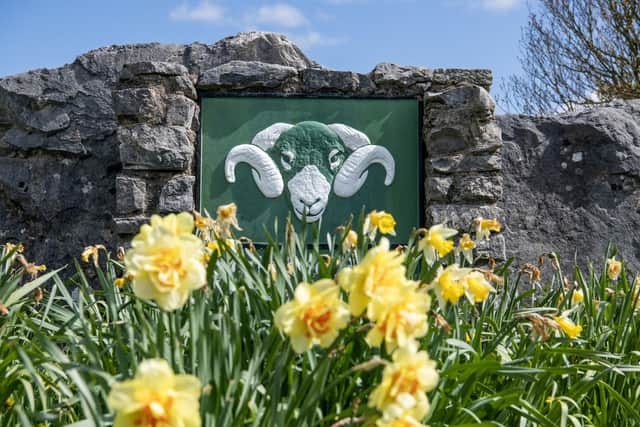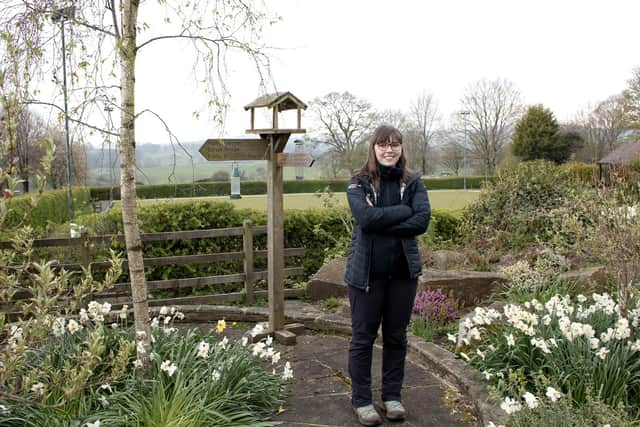New scheme encourages young people into nature-based careers in Yorkshire with places still available
As a teenager Dan Hale spent his school work experience as a landscape gardener because he wasn’t sure what he wanted to do in his life. Last week thousands of people strolled around the idyllic Victorian pleasure gardens he has spent the last eight years expertly restoring at Brodsworth Hall in South Yorkshire before settling down to watch the coronation of King Charles III.
Hale is head gardener at Brodsworth Hall, an 1860’s manor estate just outside Doncaster and one of three English Heritage sites chosen to show the momentous occasion live on big screens. Alongside viewing the ceremony, visitors saw the development of Brodsworth’s new Coronation Meadow, one of 100 which was planted to celebrate the King’s coronation.
Advertisement
Hide AdAdvertisement
Hide AdThe aim of the scheme has very much been to protect heritage and enhance nature – which fit with passions of the new King.


For Hale, the journey from a wide-eyed teenager in Barnsley to being part of a national project that will last decades has been one of joyful learning and discovery. “After leaving school I was originally training to be a PE teacher,” he says. “I realised quite quickly that I didn’t want to teach, but I did enjoy being outdoors and the physical aspects of the job. I thought about the couple of weeks’ work experience I’d done with a landscape gardener when I was still at school, and the way he had spoken about it as a career encouraged me to come back and give it a go.”
Hale credits the passion people showed for their gardens as the reason he pursued the career. “It was infectious. Growing up I had done a little bit of pottering in the garden but a career in horticulture was never pushed as a potential career in school. It wasn’t until I’d seen how much people cared about their own gardens that I started to think about it. All the different styles, from manicured lawns to big floral displays to wild woodlands – it opened up a whole world.”
After gaining qualifications from Askham Bryan College near York, Hale worked in the landscaping sector for a few years before seeing an opening for a gardener at Wentworth Castle. By his mid-20s he had risen to acting head gardener and the move to Brodsworth Hall opened up even more opportunities.
Advertisement
Hide AdAdvertisement
Hide Ad“It’s been fantastic,” says Hale, now 36. “I’ve had the opportunity to restore one of the best Victorian gardens in the country. Coming in as a young gardener, I felt the responsibility and the need to prove myself. But I have been really well supported and have a brilliant team here.”


Hale described his job as a jigsaw, working alongside archivists to piece together how the garden would’ve looked in the 1860s, and then figuring out how to make that happen in the modern world. “Sometimes I have to be a detective,” he says. “We have one of English Heritage’s largest photographic archives but they don’t always have dates on. We have to look at the plants in the photos, compare it to known introduction dates of species and then trace it backwards or forwards to figure out how it looked in the 1860s.”
While Hale’s remit at Brodsworth is to recreate the past, the need to plan for the future is deeply embedded in his work – and the Coronation Meadows are a big part of that. Out of the 100 sites chosen by English Heritage, 75 will be new meadows and 25 will be further enhancements to existing ones. Brodsworth Hall sits in the latter category. “It’s a huge honour to be chosen,” Hale says. “We’ve already got a really diverse meadow here because it’s on a limestone ridge and that immediately makes the fauna found there more interesting.”
Nestled in a wooded area beside the formal Victorian flower garden and finely manicured croquet lawns, even in early May eagle-eyed visitors will already be able to see the developments led by Hale and his team. “It’s really important in a meadow like we’ve got to encourage the right cutting techniques which will allow native flora to flourish. We use a sickle mower – basically a modern sythe – which shakes the wildflower seeds and spreads them out.”
Advertisement
Hide AdAdvertisement
Hide AdHale continues: “Much of the formal gardens here are inspired by the Italian ones the original owners used to visit. But even in those days areas were left to be more natural. It’s a beautiful contrast between the areas and they really compliment each other. As with a lot of gardening, this is a long-term project and it’s so important now to keep native flora going and encourage more. That in turn encourages insects, which encourage mammals. The richer an area is in species, the better it is for all life around it.”
That ethos of forward-planning and the need to be more sustainable is at the forefront of Hale’s mind. Brodsworth has one of the country’s best-developed composting systems of its kind, turning over around 100 tonnes a year as well as a rainwater tank that holds around 30,000 litres, which they use to water plants. For seeds and potting on we use peat-free compost and it’s fantastic – possibly the best compost we’ve ever used. People can be stubborn about change but I believe in giving things a try and that has worked out well for us.”